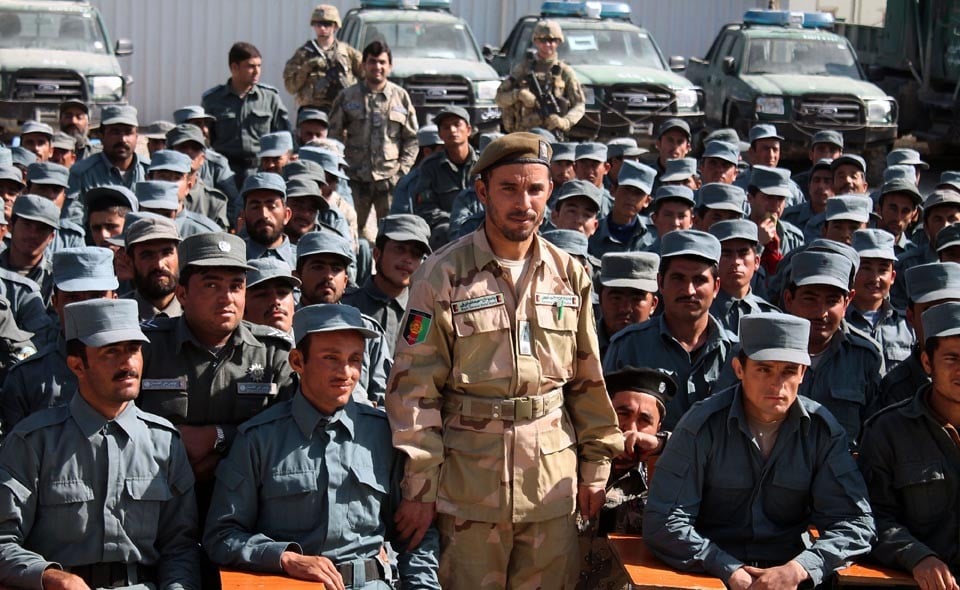
Kandahar police chief Abdul Raziq, a formidable foe of the Taliban was killed in an ‘insider’ attack, something which the Taliban have perfected

The noted Afghan police officer Brigadier General Abdul Raziq once said he had survived 29 attempts on his life.
The 30th attempt proved fatal when a rogue bodyguard fired at him and other security officials after a meeting at the Governor House in Kandahar on October 10.
Along with the 39-year-old Raziq, the Kandahar head of the National Directorate of Security General Abdul Momin, southern zone police commander General Nabi Ilham and a journalist for the state-run media were killed, US General Jeffrey Smiley, two other American security officials and Kandahar Governor Zalmay Wesa were among the injured.
While claiming responsibility for the attack, the Afghan Taliban made it clear their target was Raziq and General Austin Scott Miller, who took over as the US and Nato military commander for Afghanistan in September. The latter survived and later said in a statement that he wasn’t the target. He pointed out that it was a confined place and he could have been targeted if that was the purpose.
Though Taliban fighters must have lists of their potential targets among the Afghan government and military officials as well as their political opponents, one can say with certainty that Raziq’s name would have been there in every list. They tried to eliminate him on many occasions, but Raziq was a great survivor. He defied death and continued to challenge the Taliban. This further provoked them and finally managed to get him not in a remote or open place where he could be vulnerable, but in a maximum security compound -- that of the Governor. And they didn’t storm it or send suicide bombers to accomplish the mission, but reportedly by infiltrating the security detail of the governor of Kandahar. It was termed an ‘insider’ attack, something which the Taliban have perfected, as they have organised many such attacks.
Raziq belonged to the Pashtun tribe, Achakzai, which lives on both sides of the Durand Line border between Afghanistan and Pakistan. He came from Spin Boldak, the Afghan border town located adjacent to Chaman, the last Pakistani town in Balochistan.
His family migrated to Pakistan in 1994 and became refugees in Balochistan. It was no longer possible for the family to live under Taliban rule as Raziq’s father and uncle had been killed by the group in 1994. Taliban had captured power in Kandahar in the autumn of 1994 and gained control of Afghanistan’s capital, Kabul, in September 1996.
When Taliban were ousted from power in December 2001 as a result of the post-9/11 US invasion of Afghanistan, Raziq was quick to return home from Pakistan to join the anti-Taliban forces. He had a meteoric rise once he formally became a member of the Afghan border police. Eventually, Raziq was appointed the police chief of Kandahar, the birthplace of Taliban and their spiritual capital. Raziq is credited with effectively policing Kandahar, keeping Taliban at bay and showing courage in the face of ever-present threats to his life. He earned fame in Afghanistan as a super-patriot, fiercely opposed to the Taliban and also to Pakistan.
Also read: Glimpses of democracy
However, the tough tactics employed by him to keep peace in Kandahar by suppressing the Taliban earned him criticism from human rights organisations. In 2017, the UN Committee on Torture recommended that he should be prosecuted on account of allegations against him for torturing those in his custody and having a hand in forced disappearances and extra-judicial killings. It alleged that Raziq was operating secret detention centres where people were tortured. Raziq had denied the allegations, but it was widely believed that he used strongarm methods and committed human rights abuses. Raziq was also known to have made lots of money, acquired property and had three wives.
Raziq’s assassination was an achievement for the Taliban, but it was a setback for the Afghan government as it has created a power vacuum in Kandahar and the southwestern region where the slain police commander exercised effective control. Though his younger brother Tadeen Khan has been appointed as his replacement to head the Kandahar police, he can only aspire to achieve the status that Raziq achieved.
His death was mourned at the national level in Afghanistan. In Pakistan also, two Pakhtun nationalist parties, Asfandyar Wali Khan’s Awami National Party and Mahmood Khan Achakzai’s Pakhtunkhwa Milli Awami Party (PMAP), arranged ghaibana namaz-i-janaza (prayers) for him and termed him a martyr. President Ashraf Ghani travelled to Kandahar even if quite late after the incident to offer his condolences to the bereaved family and confer the slain cop with the title of Champion of Afghanistan’s Freedom.